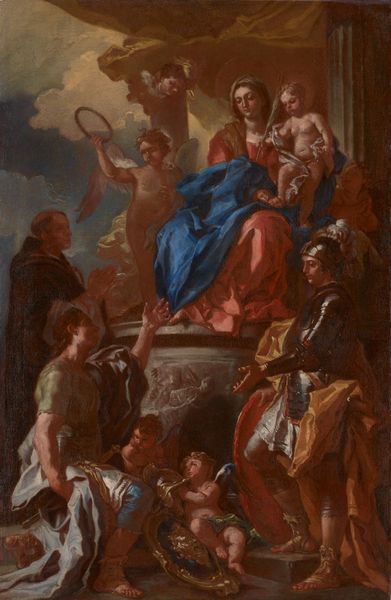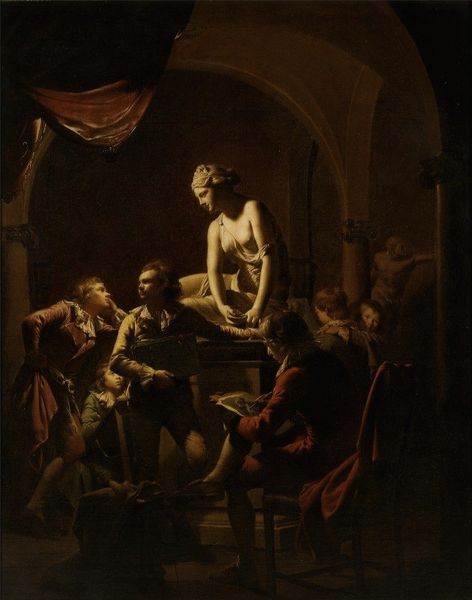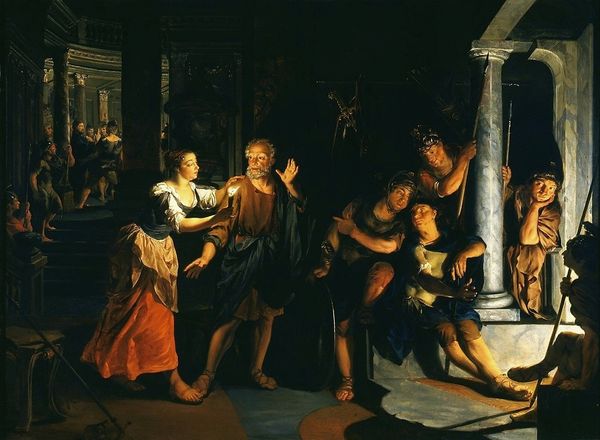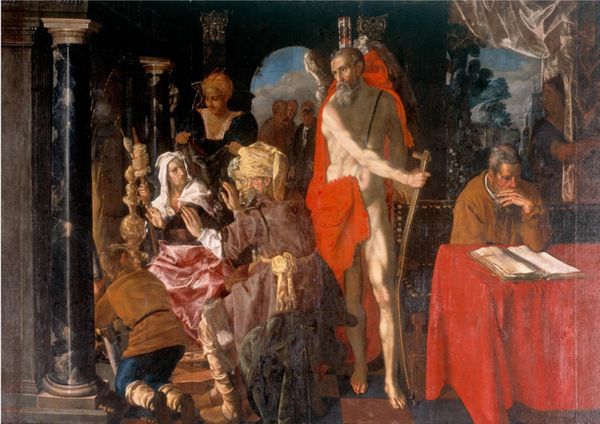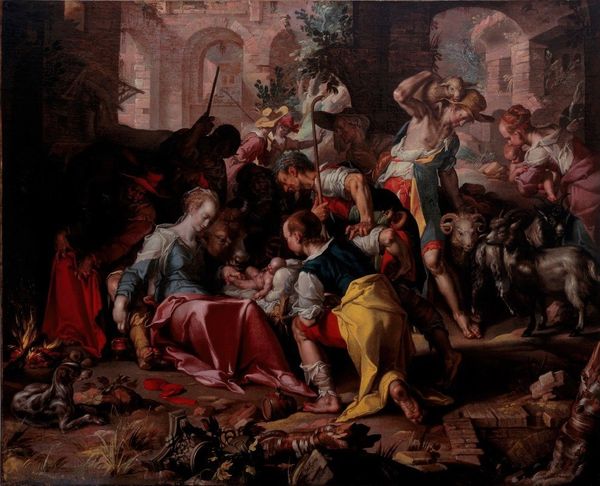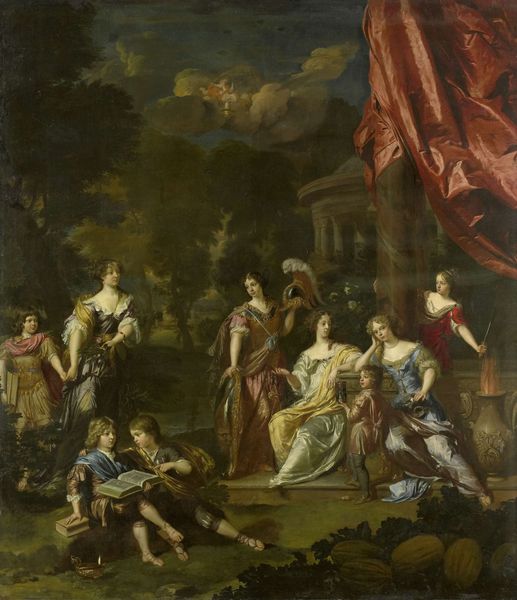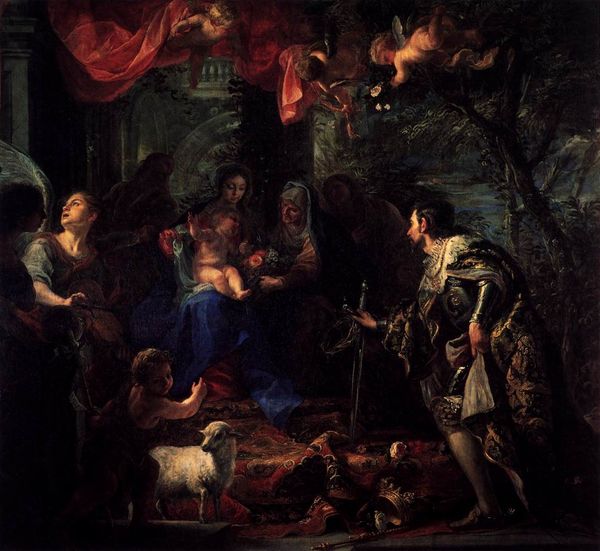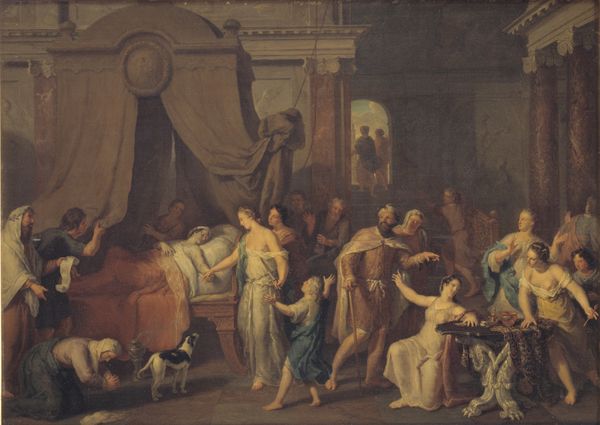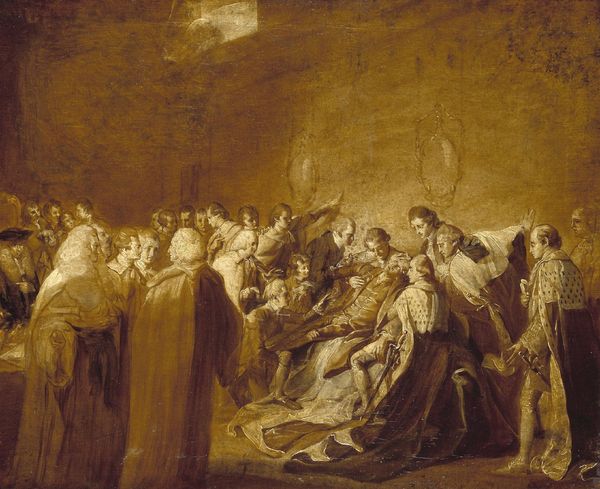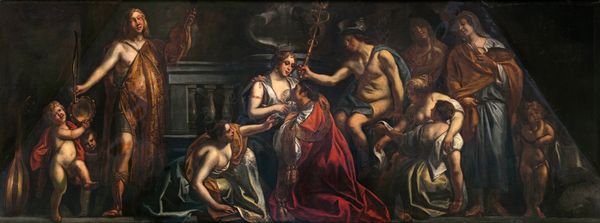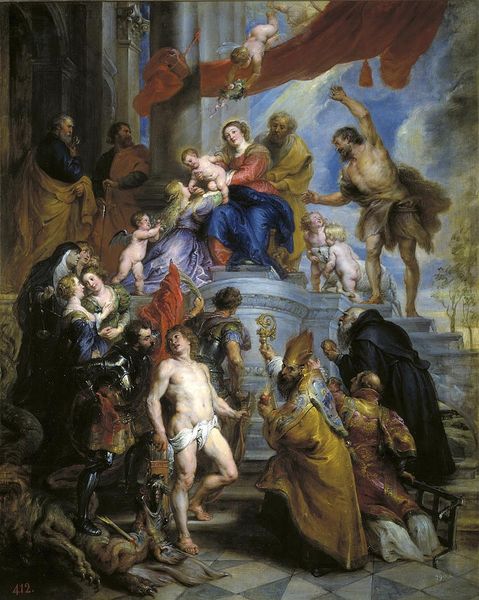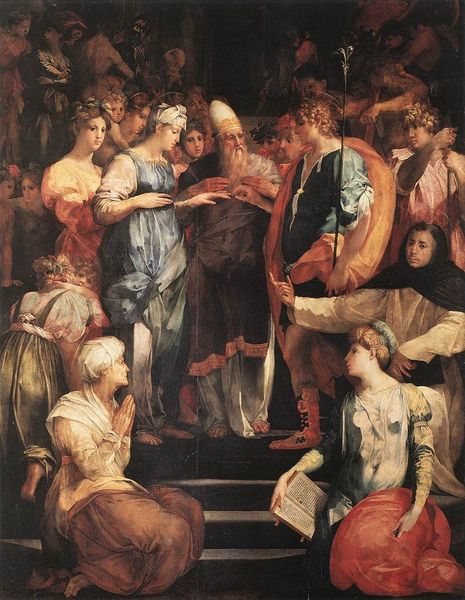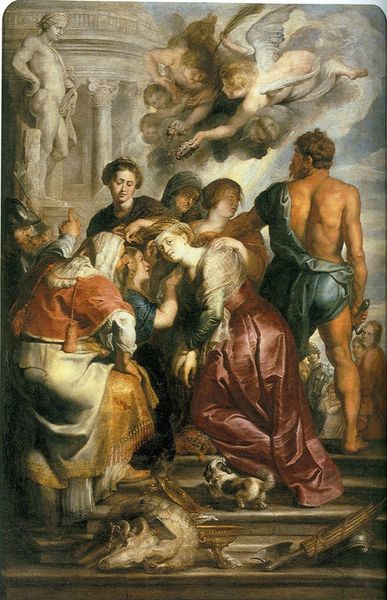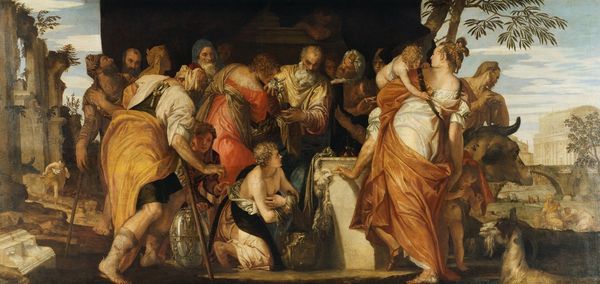
Dimensions: support: 937 x 797 mm
Copyright: CC-BY-NC-ND 4.0 DEED, Photo: Tate
Editor: This is Peter Angellis's "Conversation Piece," from the early 18th century, currently residing at the Tate. It's quite dark, but the figures seem lively. What do you make of the interactions depicted here? Curator: The gatherings of social elites are heavy with implied meaning. Note how the artist uses specific gestures and poses – a tilted head, a shared glance – to signify relationships and power dynamics within this group. What cultural memories might they evoke? Editor: So, it's not just about documenting a social scene, but also about hinting at deeper connections? Curator: Precisely. Consider how the light and shadow play. The carefully arranged setting becomes a stage where social dramas unfold through these loaded images. Editor: I never considered how much the placement of each person could mean. Curator: Indeed. It's a visual language, reflecting the intricate social code of the time.
Comments
tate 10 months ago
⋮
http://www.tate.org.uk/art/artworks/angellis-conversation-piece-t00789
Join the conversation
Join millions of artists and users on Artera today and experience the ultimate creative platform.
tate 10 months ago
⋮
Though the title has, for modern audiences, polite implications, this scene in rich surroundings is one of unrestrained revelry, including drunkenness and sexual encounters with prostitutes. It belongs to a Netherlandish tradition of slightly disreputable ‘merry company’ subjects, which emphasise lax morality and the squandering of wealth. Angellis was born in Dunkirk and came to England in about 1716. He settled in Covent Garden, a newly developed area of London which became the heart of the artistic community. Gallery label, February 2004
